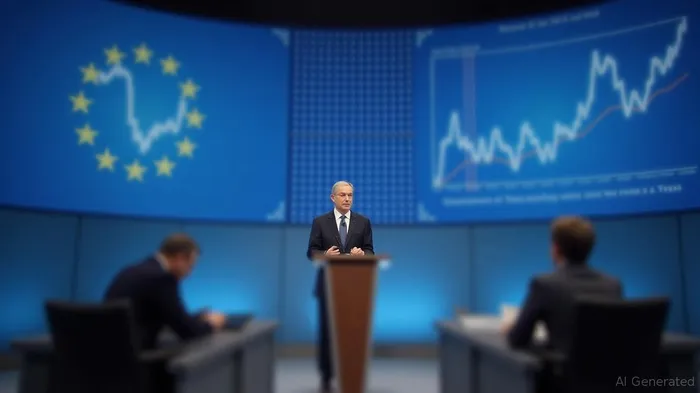ECB Enhances GDP Forecasts with ChatGPT Integration
The European Central Bank (ECB) has integrated ChatGPT into its forecasting process to enhance the accuracy of GDP growth predictions for the eurozone. According to a paper published by the bank, the ECB utilized only two pages of commentary from Purchasing Managers’ Index (PMI) reports, which were then fed into ChatGPT. The AI generated "activity sentiment scores" that were incorporated into the bank's existing GDP nowcast models, resulting in more precise forecasts.
This innovative use of artificial intelligence is part of the ECB’s broader initiative to leverage automation and machine learning. For years, the bank has been collecting web data and experimenting with large models to classify economic information. However, this marks the first instance where ChatGPT has been applied to PMI text, focusing on narratives, tone, and anecdotes within these reports.
ECB economists highlighted that while existing GDP forecasting models are robust, the integration of ChatGPT’s scores significantly improved their accuracy. The study emphasized that just two pages of text input, rather than millions of news articles, were sufficient to enhance the nowcast benchmarks. This approach does not replace traditional hard data such as retail numbers or output statistics but accelerates the process by providing real-time sentiment and tone analysis. This allows the ECB to gauge economic activity more swiftly, ahead of slower official data releases, leading to better nowcasts.
Despite the advancements in AI, the ECB’s forecasts are subject to real-world pressures. Vice President Luis de Guindos cautioned that the Middle East conflict and energy prices could disrupt growth. He noted that oil prices surged following Israel’s attack on Iran earlier this month, though they have since slightly decreased. However, energy costs remain volatile, adding uncertainty to oil price developments. This instability could impact eurozone growth and, consequently, inflation. De Guindos stressed the importance of monitoring real economic indicators to assess the inflation outlook, given the region’s dependence on imported oil and gas.
De Guindos also addressed the potential impact of trade tensions, noting that higher tariffs on European exports to the US could slow growth and affect inflation. He acknowledged that while bilateral negotiations might mitigate some issues, higher tariffs are still expected, adding pressure to the ECB’s goals. Earlier this month, the ECB reduced its key interest rate for the eighth time and hinted at nearing the end of this rate-cutting cycle. With inflation dipping just below the 2% target in May, De Guindos expressed cautious optimism, stating that the bank is close to its target but remains vigilant about potential rate adjustments.
De Guindos also advocated for deeper integration within the eurozone to manage economic shocks, including conflicts, energy issues, and economic disruptions. He emphasized the need to prioritize Europe’s interests over national ones, suggesting the removal of barriers between EU countries and the establishment of shared markets for banking, savings, and investment. This approach, he believes, is crucial for navigating the current economic landscape and ensuring stability.

Comprender rápidamente la historia y el origen de diversas monedas famosas
Latest Articles
Stay ahead of the market.
Get curated U.S. market news, insights and key dates delivered to your inbox.



Comments
No comments yet